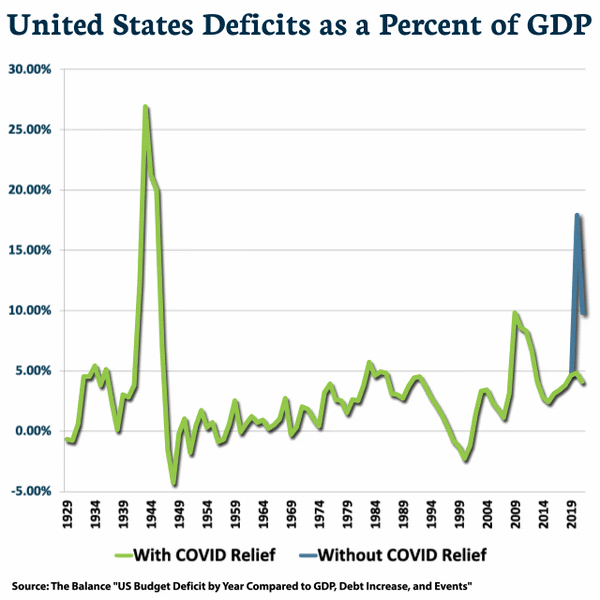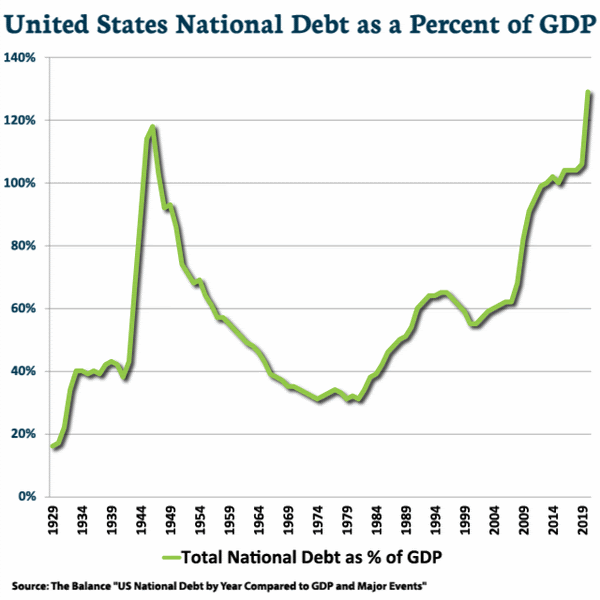Twin Fears of Higher Spending: April 2021 Newsletter Excerpt

The $2 trillion infrastructure plan comes on the heels of the trillions in spending from COVID relief. There are two concerns that naturally come to mind: taxes and inflation.
Taxes
Yes, taxes will be going back up to help fund this, but not all of it. More to the point, will your taxes go up to fund this?
During the campaign, President Biden pledged that taxes would only go up on people making more than $400,000. As most of our clients and readers are retirees, this is probably not you … at least in a literal since. These are the current tax brackets:

- A top rate back up to 39.6%
- A corporate rate, now 21%, close to 28%.
- A top rate on capital gains and dividends at about 24% versus the current 20%
- A lower exemption for the estate tax, with the possible removal of cost basis step-ups at death
This is a rational guess, but probably on the aggressive side – the capital gains rate hasn’t been this high since the 1970s. Even so, if our estimates are right, this isn’t going to be enough to fund planned spending. Let’s pretend that the government raised the top two tax brackets all the way to 100%. This would add about $700 billion in additional tax revenue. This is big money, but such a draconian tax scheme would not bridge the budget gap.
Inflation
Here’s the rub: all of this spending may never be paid for from taxes. Since the moon landing, the United States has been on a course of indefinite deficits.
In last month’s newsletter, we gently pointed out that U.S. COVID relief spending is about the same as all U.S. World War II spending. However, the size of our economy is much larger. As a quick definition reminder, a deficit happens when in a given year, we spend more than we take in. The national debt is what continues to grow as this happens. When we look at our annual deficit as a percent of gross domestic product (GDP), it’s not as scary:

Relative to GDP, our current deficits are well below WWII levels. However, over the last 50 years, as a percentage of GDP, our national debt is at a place beyond where we were at the end of WWII.

Won’t all this debt cause inflation? Optimistically, we could look to Japan as a comparison point. As a percent of GDP, our debt is at the same level as Japan in the late 1990s and today they are about double our levels. Counterintuitively, for 25 years Japan’s inflation rate has hovered around 0%. Pessimistically we could look to the Roman Empire, Imperial Spain, France in the 18th century, or China in the 19th century.
Our view is that while we don’t think it’s wise to stay on this course of eventual destruction, that destruction is likely a very long ways off. This deficit spending is not a meaningful risk in the near term.
We believe that the large deficits are going to cause a spike in GDP, which may also cause inflation to spike (perhaps to the 3-5% range). If this happens, it will hit the headlines and cause some fear. Our long term anticipation is that inflation will continue to be subdued outside of something more catastrophic.
…………..

